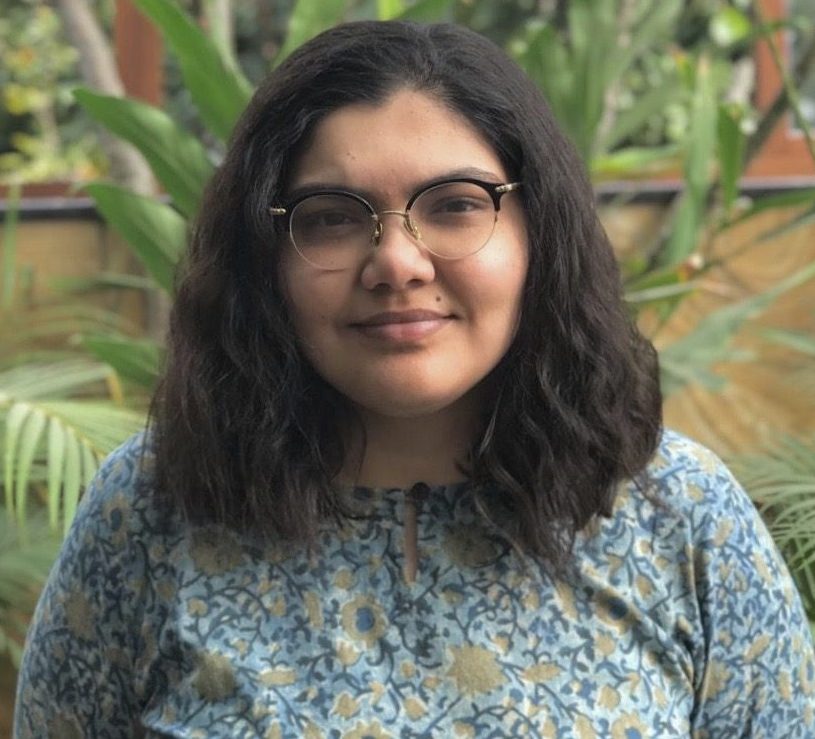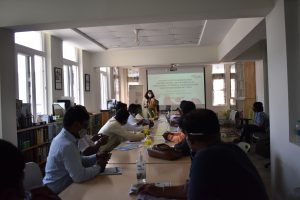
On 27 February 2021, the Centre for Law and Policy Research in collaboration with Thamate – Centre for Rural Empowerment, conducted a workshop titled ‘Tackling Caste Discrimination: Understanding the Prohibition of Employment as Manual Scavengers and their Rehabilitation Act, 2013 (PEMSRA hereinafter). Around 30 participants working on eliminating manual scavenging as employment participated in the workshop.
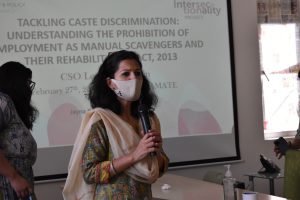
The first session, led by Jayna Kothari, Senior Advocate and Executive Director of CLPR, gave an overview of the PEMSRA. Before delving into the provisions of the Act, Jayna emphasized how although the practice of manual scavenging is deeply entrenched with the caste system the Act does not take into account this social reality. On the other hand, the Scheduled Castes and Scheduled Tribes (Prevention of Atrocities) Act, 2013, treats ‘manual scavenging’ as one of the atrocities.
Jayna then took the participants through the various sections of the Act, and its nuances. The participants gave their inputs on many of the ground level implementation related challenges. For instance, although the definitions in the Act state that persons who clean sewers and septic tanks with the help of protective equipment are not manual scavengers, protection equipment is hardly given and usually it is nothing more than a pair of gloves. Jayna also highlighted important judgments in this regard such as the National Institute of Rock Mechanics vs. Asst. Commissioner.
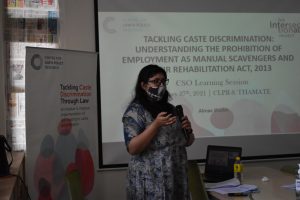
The second session was conducted by Almas Shaikh, a research associate at CLPR. She went through the Rules framed under the PEMSRA and its key features – such as District Level Survey Committees, State Level Survey Committees, the safety precautions it provides, the list of protective devices and cleaning devices, etc. More importantly, it mandates atmosphere tests to check for oxygen deficiency before cleaning. And requires that cleaning must occur in daylight and for not more than 90 minutes at a time along with the availability of first-aid and an ambulance on stand-by.
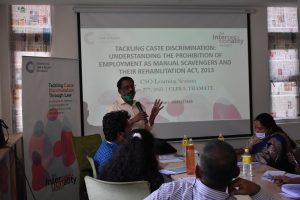
The third and last session for the day – ‘Implementation of the Act – Litigation in Karnataka’ and was led by Dr. K.B. Obalesh, Executive Director & State Convenor, Safai Karmachari Kavalu Samithi – Karnataka (SKKS-K); Padma M, State Organizing Convenor, SKKS-K and Siddharth Joshi, SKKS-K.
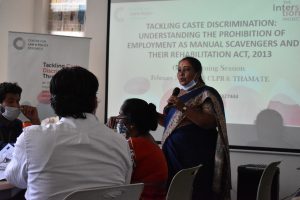
This session opened up a conversation on the importance of litigation to better implement PEMSRA and push for desired changes. It also examined the impact of past and ongoing litigations on addressing the ground-level realities. They spoke of how the introduction of mechanized cleaning equipment came about only after strategic intervention before the courts. And gave examples of how local authorities have started to actively engage and execute their duties due to an Interim Order of the Karnataka High Court in ongoing litigation.
The workshop concluded with participants’ suggestions on the better implementation of PEMSRA. They urged for framing Government Schemes aimed specifically at persons identified as manual scavengers, accelerating the process by which the names of persons for self-identification as manual scavengers get approved and seeking enforcement of the provisions for rehabilitation as enumerated in the PEMSRA its Rules through litigation.

